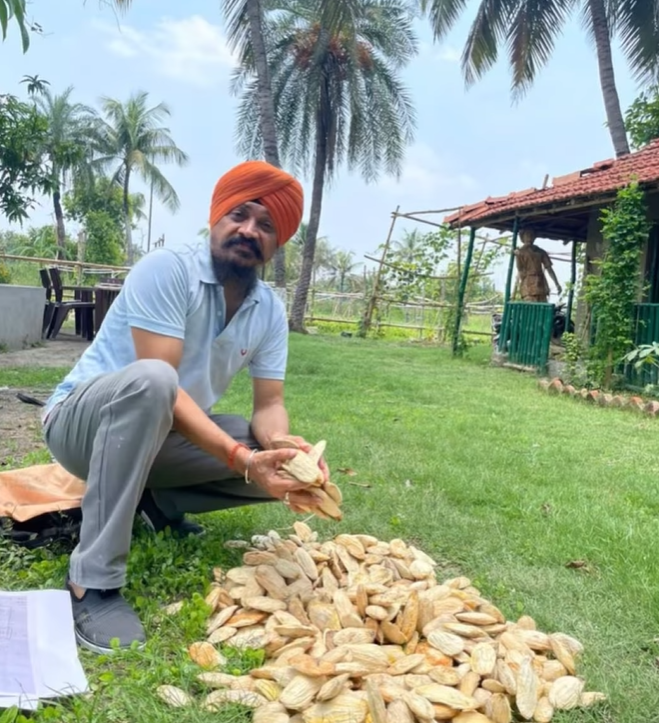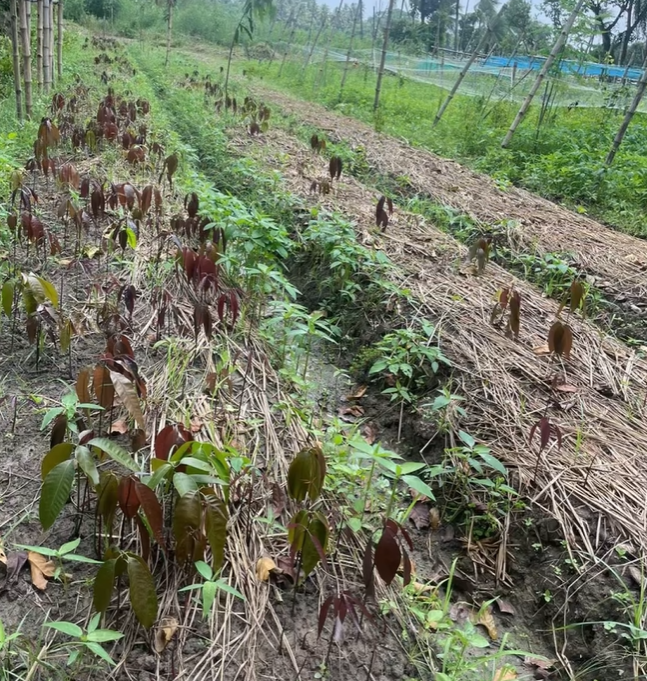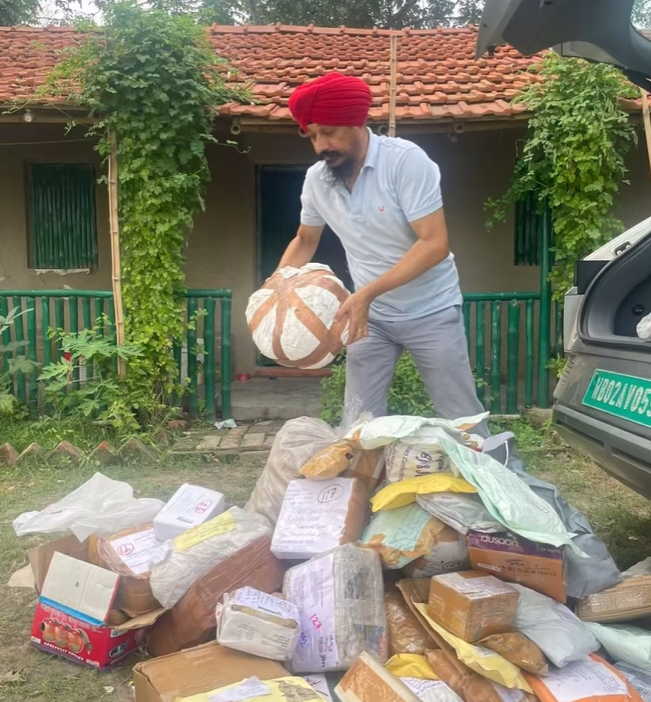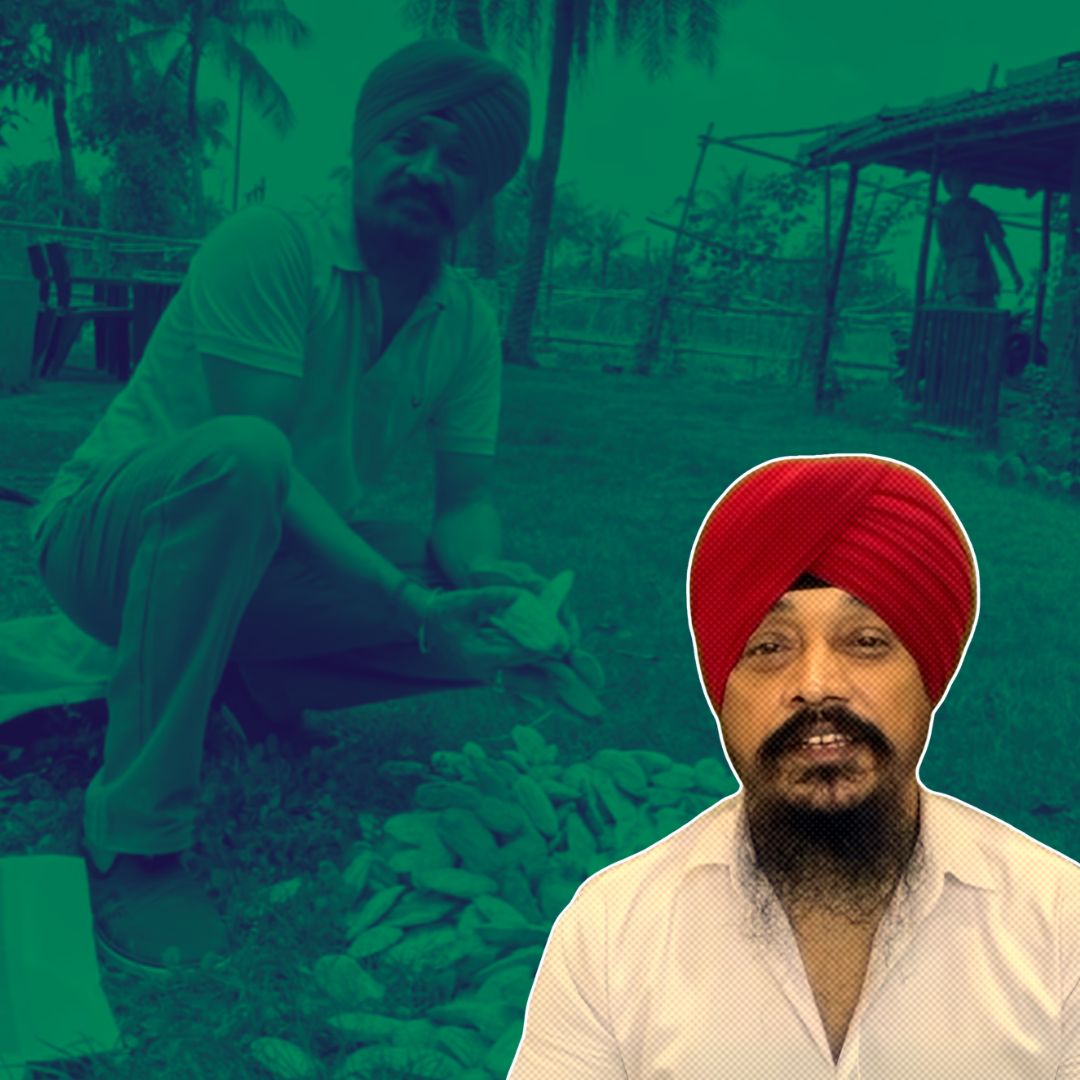Jasmit Singh Arora, a 51-year-old social entrepreneur and former doctor from Kolkata, is leading a nationwide movement to rescue millions of discarded mango seeds and nurture them into saplings, which he distributes free of charge to farmers across India.
Dubbed the ‘Gutli Man of India’, Arora’s initiative aims to transition farmers from water-intensive, low-yield crops like paddy to sustainable mango cultivation, offering long-term income, carbon sequestration, and biodiversity benefits.
Over the past year, the campaign has gained momentum, with over two lakh seeds collected from Kolkata and another lakh from across the country, thanks to support from schools, NGOs, and even the army. Arora’s mission is rooted in kindness, environmental stewardship, and a vision for a greener, more prosperous rural India.

Founder’s Journey: From Medicine to Mangoes
Jasmit Singh Arora’s journey is as unique as his initiative. A medical graduate, he initially practiced as a doctor before venturing into the worlds of IT and pharmaceuticals, and later, entrepreneurship.
Over the past decade, his frequent travels to remote regions like the Sunderbans, Purulia, and Bankura exposed him to the harsh realities faced by farmers-debt, climate vulnerability, and the struggle to sustain their families. Moved by their plight, Arora decided to dedicate his life to social work and environmental causes.
His passion for nature and sustainable living led him to experiment with organic farming and tree plantation. “I never use chemicals.
If I promote chemical farming, the short-term gain will be eaten up by long-term health costs. I want to prove that organic farming can also be profitable,” Arora explains. This philosophy became the cornerstone of his mango seed initiative, which he launched five to six years ago.

Seeds of Change: How the Initiative Works
Arora’s initiative is built on a simple yet powerful idea: transforming waste into wealth. Every mango season, he and his team collect seeds from households, schools, hotels, and markets across the country. The seeds are meticulously cleaned, sun-dried for two to three days, and then sent to his five-acre farm in Amtala, near Kolkata.
Here, the seeds are germinated and carefully grafted with local mango varieties such as Langda, Gulab Khas, and Himsagar, ensuring the saplings are well-suited to regional climates and can thrive organically.
Once the saplings are ready, Arora donates them free of cost to farmers, primarily in West Bengal. These farmers, who previously relied on low-yield, water-intensive crops like paddy, are now embracing mango cultivation as a sustainable alternative.
“Mango trees take years to mature, but they are a long-term solution. They lock carbon, support biodiversity, and can generate a decent income for farmers once they start bearing fruit,” Arora explains.
To build trust and provide immediate relief, Arora also distributes fast-yielding fruit plants alongside mango saplings. The initiative has now expanded to include over 20 city schools in Kolkata, as well as colleges, NGOs, and even army units. The Tololing Battalion and two Sikh regiments from Barrackpore Cantonment recently contributed 7,500 seeds to the cause.

Community Impact and Official Support
The ‘Aam ki Gutli collection revolution’ has become a community-driven movement. Schools like Shri Shikshayatan, Loreto, Don Bosco Park Circus, and Lakshmipat Singhania Academy are actively participating, encouraging students and parents to save and send mango seeds.
Sunita Arora, principal of DPS Howrah, praised the initiative, stating, “That someone has come forward and is thinking of helping the poor farmers is a noble initiative and we are proud to be part of it.”
Arora is also launching a nationwide “Carbon Protection Force”, urging corporates, schools, and media houses to take responsibility for locking carbon through tree planting. “We’ve done enough damage to the Earth. Now it’s time to repair. And it starts with us, not the government, not big industries. Us,” he says.
Officials and environmentalists have lauded the initiative for its grassroots approach and potential to address climate change, rural poverty, and food security. The West Bengal government has expressed interest in scaling up the project, with discussions underway to integrate it into state-led agroforestry programmes.

The Logical Indian’s Perspective
The Logical Indian applauds Jasmit Singh Arora’s vision for marrying environmental stewardship with rural empowerment.
His approach, rooted in kindness, empathy, and sustainable action, exemplifies how individual initiative can spark collective change. By encouraging organic farming and community participation, Arora’s movement not only addresses climate challenges but also fosters harmony between people and nature.













